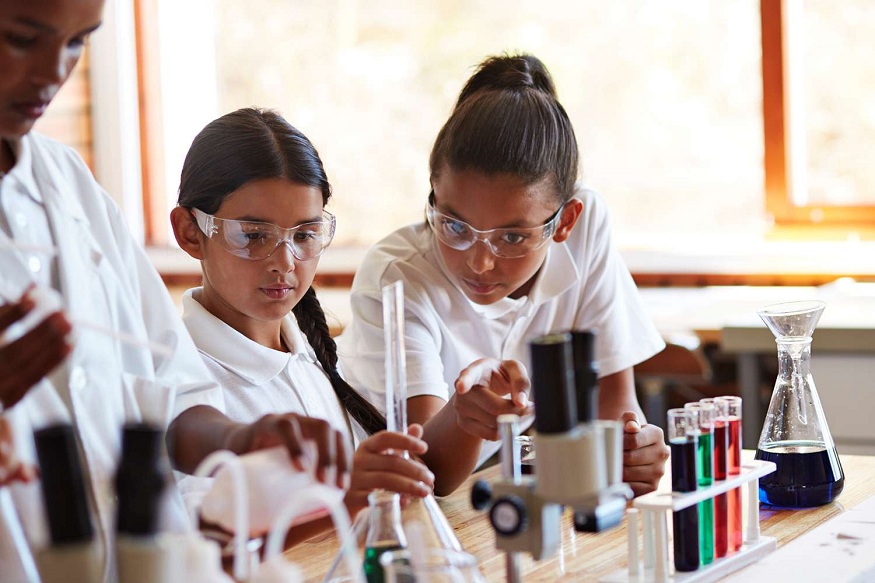What is an element? How is our oxygen composed? Chemistry answers these fundamental questions, but this cannot adequately describe the depth of existing knowledge and research in chemistry. Often associated with physics thanks to physics-chemistry courses, chemistry is a science in its own right.
Far from the image of the mad scientist experimenting alone in his laboratory, chemistry is present in many areas of our daily lives. R&D (Research and Development), analysis and control, production, quality and even the environment are themes that require skills in chemistry.
What is chemistry? Who is she talking to ?
Larousse offers two definitions of chemistry. The first describes it as being the “part of the physical sciences which studies the atomic and molecular constitution of matter and the specific interactions of its constituents”. The second evokes all “knowledge on the preparation, properties and transformations of a body”.
We therefore remember that chemistry is a science which studies organic and inorganic matter and its interactions at the level of atoms and molecules. This science is subdivided into several subfields, such as biological chemistry, combinatorial chemistry, inorganic chemistry, fundamental chemistry and even green chemistry.
Chemistry is aimed at technicians or senior technicians, engineers, researchers. By following a training course in chemistry, you will cover theory but also carry out practical work.
What qualities are required to master chemistry?
To be a good scientist, it is necessary to know how to demonstrate rigor, precision and perseverance. Indeed, it is not uncommon to perform the same experiment over and over again, until the expected result is achieved. You must then be patient but also know how to be critical of your work and that of others, while analyzing and exploiting the results obtained. Sometimes being creative, curious and imaginative allows you to find solutions to a given problem. On the other hand, solid knowledge of mathematics and a good scientific culture, particularly through reading scientific articles, will make it easier to learn chemistry.
Furthermore, good communication is necessary and facilitates teamwork. Knowing how to write detailed reports and use calculations are essential skills. Sometimes in a dangerous working environment, the chemist must respect safety rules to cause a chemical reaction safely, and demonstrate vigilance and reactivity.
Finally, knowing how to use laboratory equipment correctly, mastering IT tools and often even having the basic of technical English are prerequisites.
Why learn chemistry?
Learning chemistry means being interested in the sciences that govern chemical elements. Lectures and chemical laboratory experiments punctuate the training courses. Courses cover the design, analysis and preparation of chemical, organic and inorganic compounds, and the writing of associated protocols. Learning the experimental approach is also essential. To do this, you will learn to use the essential concepts of mathematics, physics-chemistry and computer science, such as the synthesis of atoms to create new molecules.
During your practical and experimental training, you will be taught the use of the most common measuring devices and techniques in the laboratory. This learning is often closely linked to regulations specific to chemical experiments, and preventive health and safety measures. In addition, respect for ethical and professional principles and environmental responsibility occupy a growing part of chemistry training.
The study of molecules and atoms does not only involve practice: in fact, modeling and calculating the margin of uncertainty on an experimental result, as well as the identification of production processes or even the writing of articles in publications relating to the chemical sciences also constitute part of the teaching.

